From apples to oats — a list of 14 ‘superfoods’ you should be eating
Many foods have bigger health benefits than were previously known. The experts explain the new scientific findings.
Nutrition
Don't miss out on the headlines from Nutrition. Followed categories will be added to My News.
This month a team of Italian scientists made headlines with an invention that sweet-toothed snackers must fantasise about: a chocolate biscuit that can aid weight loss.
Disappointingly, this particular biscuit is not yet manufactured by McVitie’s.
However, it is a normal biscuit, albeit one that’s infused with a bitter compound from the wormwood plant that promotes the release of hormones to make those eating it feel full.
Sound familiar? Yes, while other scientists are working on pill forms of the weight-loss drugs that mimic the naturally occurring hormone GLP-1, the researchers from the University of Eastern Piedmont went to the root of the obesity crisis and tinkered with the sweet treats that stimulate our sugar cravings.
Yet no matter how effective it may prove to be as, say, an alternative to Ozempic, a biscuit is still an ultra-processed product, with all the health issues that entails.
For a truly healthy diet, the latest research shows no single “superfood” comes close to providing the nutritional benefits of food diversity, let alone one that takes the form of a chocolate biscuit.
For instance, eating different fruits, vegetables, wholegrains, unsaturated fats, nuts and legumes, along with some fish and certain dairy products such as yoghurt, was recently shown by Harvard researchers to raise the chance of reaching old age without any major chronic disease and in good cognitive, physical and mental health.
Meanwhile, a study of 450,000 cancer-free adults in nine European countries supported by the World Cancer Research Fund (WCRF) and published in the European Journal of Cancer found that people with the most diverse diets were at a 23 per cent lower risk of developing gastrointestinal cancers compared with those eating the least variety of foods each week.
“For cancer prevention, we know that it’s important to eat a balanced and varied diet,” says Dr Helen Crocker, assistant director of research and policy at the WCRF.
“This newer area of research suggests that variety even within a species of food – that is, the type of plant or animal from which it is derived – is also important.”
Although the mechanisms are not fully understood, “the fact that we are finding these patterns and potential patterns for other chronic diseases confirm that these sorts of diets are good for us”, she adds.
By contrast, a repetitive dietary pattern risks nutrient deficiencies.
“None of this needs to be complicated or expensive,” says Dr Linia Patel, a researcher in the department of clinical sciences and community health at the Universita degli Studi di Milano in Italy and a spokeswoman for the British Dietetic Association.
“The foods we need are staples, mixing them up as much as possible so that we add as many different things to our menu each week.”
Here are the 14 basics we should include in our diets every week:
BANANAS
We’re routinely advised to eat less salt to maintain a healthy blood pressure. But a new study in the American Journal of Physiology by Anita Layton, professor of applied mathematics, computer science, pharmacy and biology at the University of Waterloo in Canada, and colleagues suggests that increasing the ratio of dietary potassium to salt has a more potent effect on blood pressure control.

And bananas are a good way to redress this balance. “Our research suggests that adding more potassium-rich foods to your diet, such as bananas or broccoli, might have a greater positive impact on your blood pressure than just cutting sodium,” Layton says. Bananas contain fibre and magnesium, and other heart-friendly nutrients.
OATS
Oats, packed with beta-glucan, a soluble fibre that slows digestion, help to increase feelings of fullness. Last year, researchers reported in the journal Current Nutrition Reports that eating oats regularly helped with weight management, appetite control and maintaining a healthy gut microbiome.
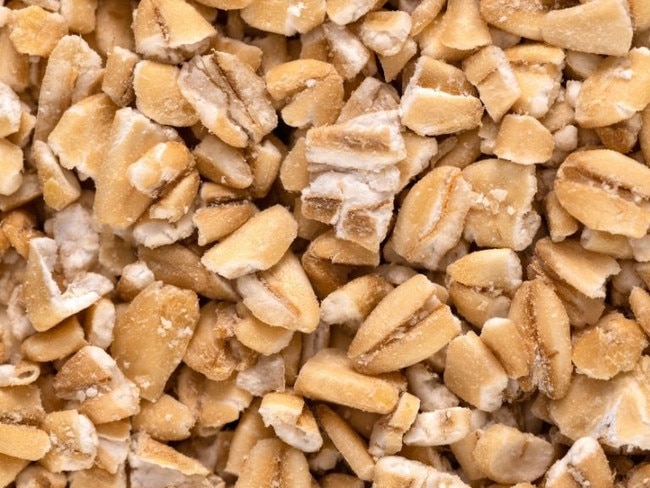
The less processed, the better. Irish oats, the course cut, jumbo variety, have a lower glycaemic index than instant porridge pots and sachets, meaning they cause less of a sugar spike.
BEETROOT
Athletes love the starchy root veg for its performance-enhancing effects. The nitrates it contains were found to provide a significant boost to muscular endurance and sprint power, in a recent review involving more than 2600 participants. But there are benefits for mere mortals too: in one study of middle-aged women at Penn State University, daily consumption of beetroot juice was found to help to keep blood vessels healthy, promote better circulation and reduce future heart disease risk.
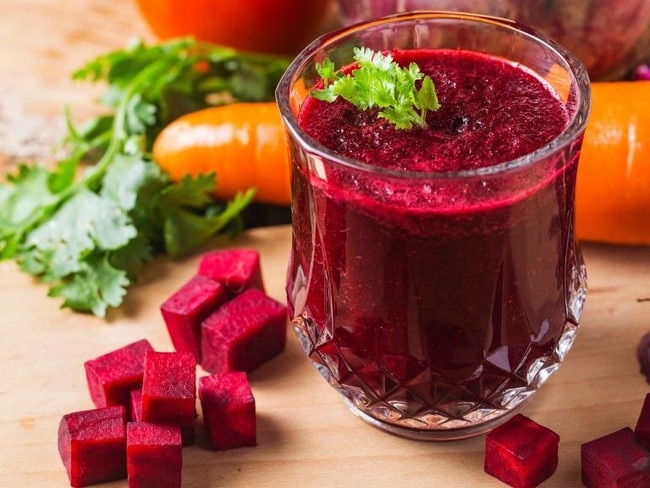
“Foods that are rich in nitrate, especially beets, are being investigated as a natural, non-pharmaceutical way to protect the heart and blood vessels,” says Jocelyn Delgado Spicuzza, lead author on the paper. Leafy greens (including beetroot leaves) are also rich sources of nitrates.
BLACK TEA
Herbal and green teas have a reputation as the most health-enhancing, yet humble black tea matches many of the benefits. Rich in antioxidant-rich flavonoids, naturally occurring polyphenol plant compounds that are a force for health improvements such as reducing cell damage and lowering inflammation, black tea has anti-inflammatory and gut microbiota-boosting effects, according to a recent paper in the International Journal of Food Science.
And this month a study of more than 62,000 women and 23,000 men over 24 years carried out by Professor Aedin Cassidy of Queen’s University Belfast with colleagues from Edith Cowan University and Harvard University suggested that flavonoid-rich foods including black tea could support healthier ageing.
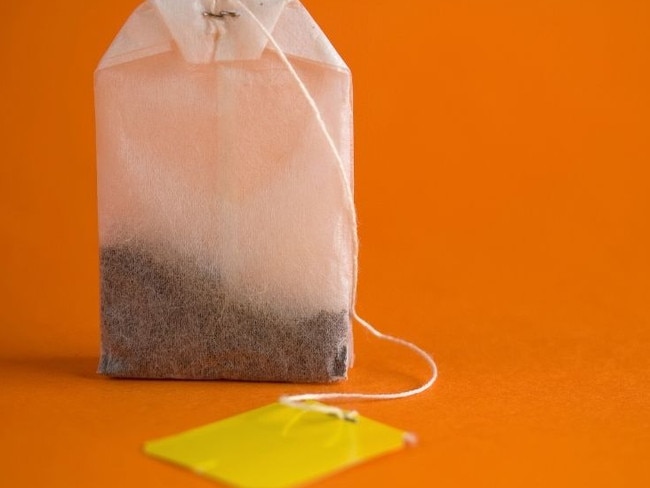
“Flavonoids are well known for reducing oxidative stress and inflammation, supporting blood vessel health, and even helping to maintain skeletal muscle mass – all of which are important for preventing frailty and maintaining physical function and mental health as we age,” Cassidy says. A daily cuppa is enough to make a difference, but two to six cups a day has been shown in studies to be a healthy range.
NUTS
Adding nuts to your diet is one of the simplest and most effective health strategies, and the greater variety of nuts, the better. “With a mix of nutrients – including fibre, omega-3 alpha-linolenic fatty acids, protein and polyphenols – nuts have been shown to reduce risk of chronic diseases,” says the registered nutritionist Eli Brecher. Norwegian scientists revealed that eating a handful of nuts a day helped to lower risk of heart disease, cancer and other diseases.
Nuts can even boost your cognitive performance.
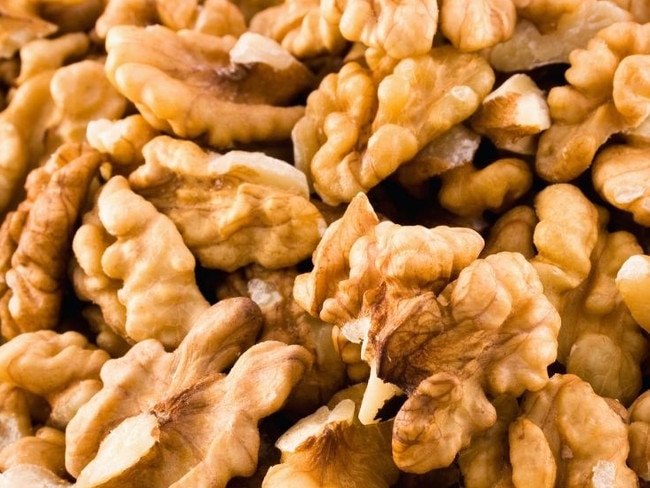
In February researchers at the University of Reading found that a handful of walnuts (50g) at breakfast – mixed into muesli and yoghurt – led to improved brain function throughout the day for a group of 18 to 30-year-olds, helping to “strengthen the case for walnuts as brain food”, says Claire Williams, a professor of neuroscience who led the study.
ORANGES
Oranges and other citrus fruit are rich in immune-supporting vitamin C and a good source of fibre. Eating them regularly helps levels of the beneficial gut bacterium Faecalibacterium prausnitzii to flourish, in turn triggering the production of mood-elevating neurotransmitters serotonin and dopamine.

In February Harvard scientists suggested that an orange a day could reduce the risk of depression by as much as 20 per cent. It can also reduce risk of macular degeneration, a leading cause of blindness, by as much as 60 per cent compared with not eating the fruit, according to an Australian study of people aged 50 plus. It is the flavonoids in oranges that appear to offer protection and the researchers said that even one orange a week is helpful for maintaining eye health.
APPLES
Apples, rich in beneficial flavonoids, were another food on the list of Professor Cassidy and her colleagues in their study of foods that promote healthy ageing. The researchers found that participants who increased their intake of flavonoid-rich foods, including apples, by three servings a day had a 6-11 per cent lower risk of frailty, physical decline and poor mental health in women, and a 15 per cent lower risk of poor mental health in men.
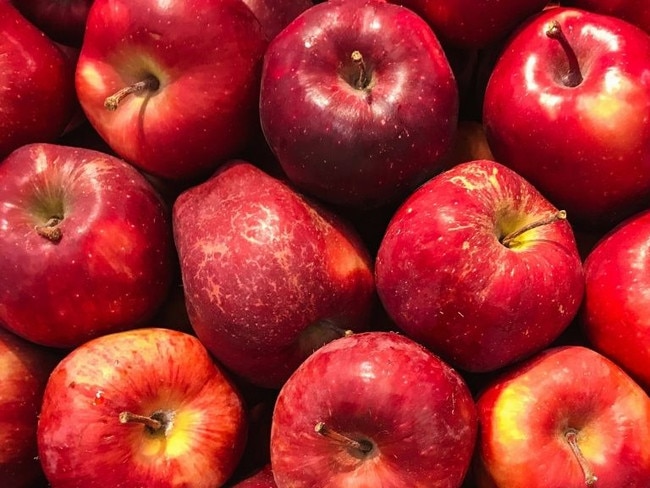
In a previous study apples and other flavonoid-rich foods were found to boost gut bacteria diversity, which in turn helps to lower systolic blood pressure (the “top” number in a blood pressure reading). “Our gut microbiome plays a key role in metabolising flavonoids to enhance their cardioprotective effects,” she said.
WHITE BUTTON MUSHROOMS
The more mushrooms you eat, the lower your risk of cancer, according to a review of 17 cancer studies using data from more than 19,500 cancer patients that was published in Advances in Nutrition. All mushrooms are rich in vitamins, nutrients and antioxidants, and those who ate 18g of mushrooms of any type daily had a 45 per cent lower risk of cancer than people who ate no mushrooms.
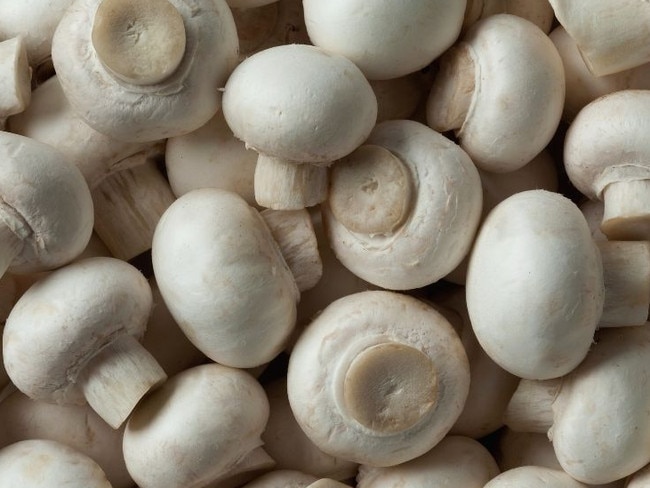
Some exotic varieties such as shiitake, oyster, maitake and king oyster mushrooms do have higher amounts of ergothioneine, an antioxidant known to protect cells and tissues, but white button mushrooms also contain some for a protective effect. Last year, scientists conducting a “food as medicine” trial at the City of Hope cancer research centre in California showed that a white button mushroom supplement may help to slow the spread of prostate cancer.
“We’re finding that plant-derived substances may one day be used to support traditional cancer treatment and prevention practices,” said Professor Shiuan Chen, professor and chairman of the Department of Cancer Biology and Molecular Medicine, who led the study.
YOGHURT
Why pay for fancy fermented foods when yoghurt has proven benefits at a fraction of the cost? Like the milk from which it is made, yoghurt provides iodine, vitamins D, B2 and B12, zinc, protein and calcium. But the bacteria – typically Lactobacillus bulgaricus and Streptococcus thermophilus – added to ferment milk sugar, lactose, during the yoghurt-making process is what makes it particularly good for the gut.
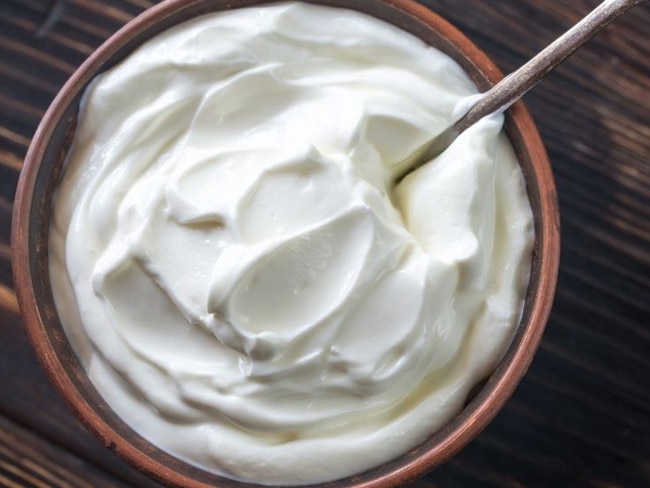
Maria Branyas Morera from Spain was the world’s oldest person when she died aged 117 last year. And one of the secrets to her longevity? Three servings of yoghurt a day that helped her microbiome to flourish and fight off disease, according to scientists who published a study on her lifestyle habits. And in January a study of more than 150,000 people showed that eating two or more servings of yoghurt a week resulted in lower incidence of some types of colorectal cancer as they got older.
OLIVE OIL
Switching from butter to olive oil, which comprises predominantly monounsaturated fatty acids, including the potent oleic acid that is known to reduce inflammation in the body, is a hugely positive move. “Olive oil also contains vitamins E and K, and beneficial polyphenol compounds and antioxidants that may help to reduce your risk of disease,” Patel says.
Recently, researchers from Harvard and other institutions looked at data collected from 200,000 individuals over 30 years and found that those with higher intakes of plant-based oils such as olive oil were less likely to die prematurely from cancer and cardiovascular disease. Butter intake was associated with a higher risk of early death from cancer.
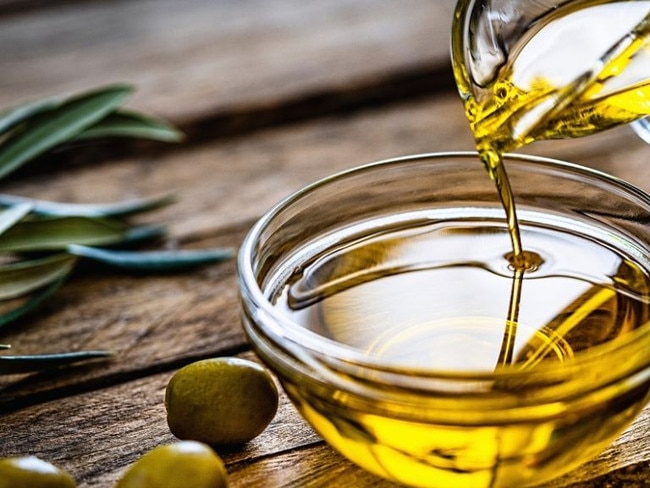
“Even cutting back butter a little and incorporating more plant-based oils into your daily diet can have meaningful long-term health benefits,” said Daniel Wang, assistant professor in the department of nutrition at Harvard. Substituting less than a tablespoon of butter (10g) a day with olive oil could lower cancer deaths and overall mortality risk by 17 per cent, they found.
EGGS
Wrongly maligned as bad for the heart for many years, eggs are in fact a powerhouse of important nutrients. From the yolks you get amino acids, omega-3 fatty acids and vitamins D and B12, and they are one of the most concentrated food sources of choline, a B vitamin that plays an important role in metabolic processes and brain function. “The yolks are also a rich source of leucine and zeaxanthin, crucial for healthy vision and eye health,” Patel says. “Egg whites are a source of protein.”
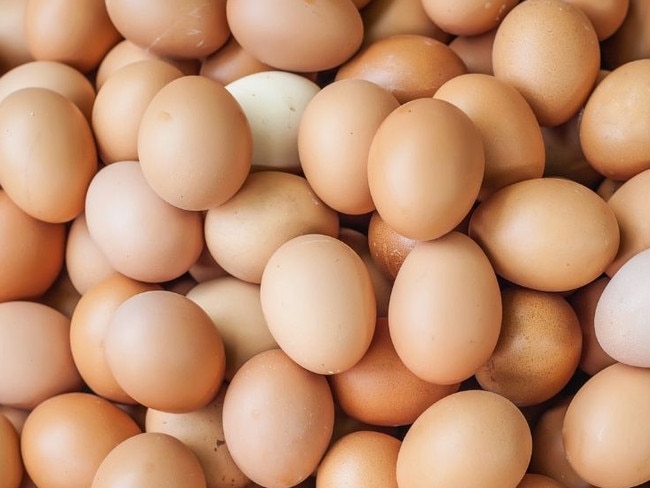
Last year, a team from the Memory and Ageing Project at Rush University in Chicago showed that older adults without memory loss who ate more than one egg per week had a 47 per cent reduction in risk in developing Alzheimer’s. The choline content of eggs accounted for 39 per cent of the protection, they concluded. “There is no upper limit on egg consumption set by the NHS and for most healthy people eating one to three eggs daily, including those added as an ingredient to food, is fine,” Patel says.
BEANS, PEAS AND LENTILS
According to data from the National Diet and Nutrition Survey, UK adults consume just 15g of dried pulses such as beans, lentils and chickpeas and 27g of legumes such as broad beans and butter beans per day – well below the total of 80g a day recommended as one of your five-a-day. Professor Julie Lovegrove, director of the Hugh Sinclair Unit of Human Nutrition at the University of Reading, and her colleagues recently revealed in the European Journal of Nutrition that people who regularly include beans, peas and lentils in their diets have higher intakes of essential fibre, vitamin E and folate, and important minerals such as iron, zinc and magnesium than nonconsumers.
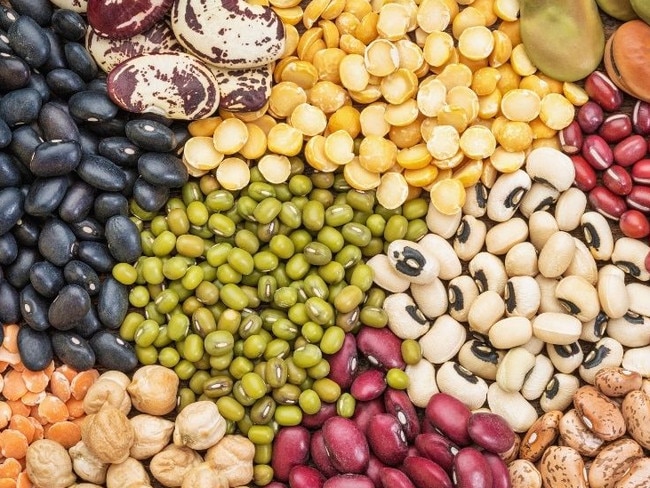
Adding beans to a curry or substituting some of the meat in a bolognese sauce with lentils are two ways to get more, Lovegrove suggests. “These foods are not only nutritious but also incredibly versatile, affordable and sustainable.”
BERRIES
Some berries are viewed as superior in the health stakes, but all provide vitamin C, fibre and anthocyanins, the flavonoids responsible for the red and blue colour of berries, that have particularly potent effects. The deeper the red, blue or purple hue of a fruit, the more anthocyanins they contain. But Cassidy says variety is best – and that any berry is better than none.
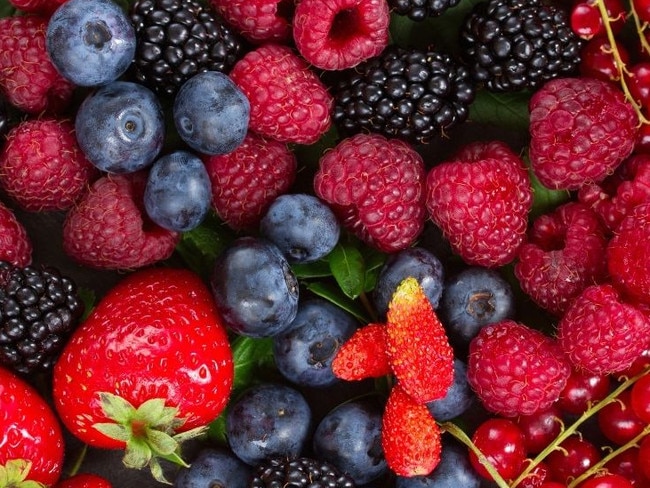
“Try to consume as many red, purple and blue-coloured berries as you can,” she says. Her studies have shown that people who eat at least three portions of berries a week are at a significantly reduced risk of heart disease, dementia and other conditions such as type 2 diabetes. Higher intakes are associated with greater diversity in their gut microbiome, known to be important for health maintenance, and also help to keep blood pressure at a healthy level.
DARK CHOCOLATE
Still craving a chocolate biscuit? Well, for a sweet treat, a few squares of dark chocolate is a far better alternative. The flavonoids in 70 per cent-plus dark chocolate have antidiabetic, anti-inflammatory, and antimicrobial properties according to a Current Research in Food Science review, and a few squares a day led to improvements in brain health and mental fatigue in older adults whose diets were low in flavonoids.
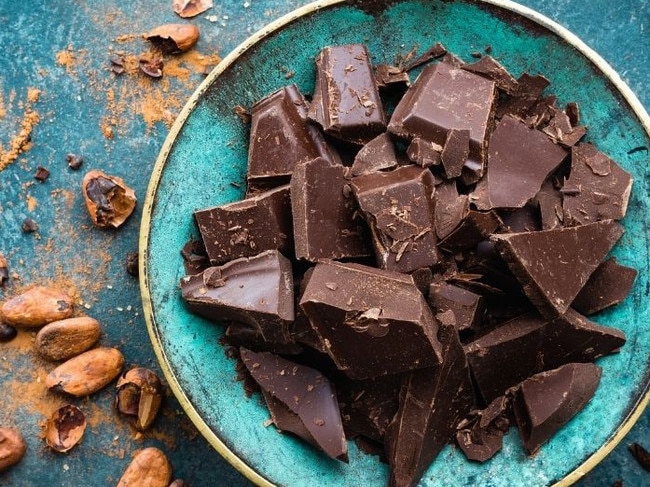
“Dark chocolate contains some magnesium and antioxidants,” Patel says. “And some studies have shown that the stearic acid it contains might help to slow digestion and increase the feeling of fullness.”(wcrf.org).
The original version of this article appeared on The Times.
More Coverage
Originally published as From apples to oats — a list of 14 ‘superfoods’ you should be eating




